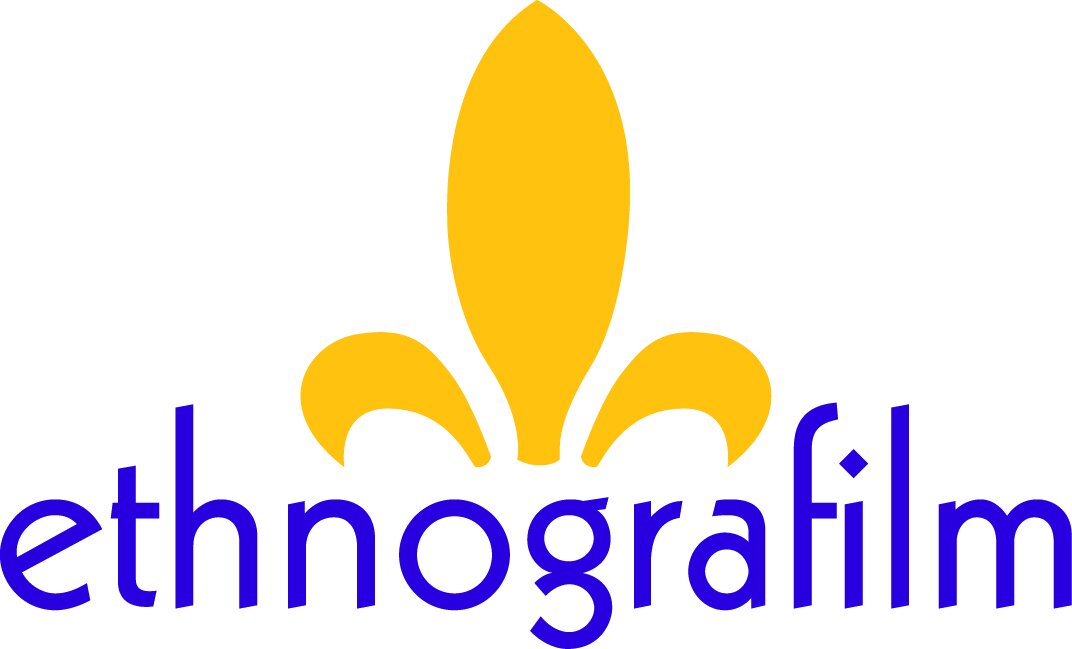Ethnografilm screens movies that advance our understanding of “humans doing things, and/or not doing things, together.” Ethnografilm selections–short and feaure length films alike–will share the following characteristics: they constitute a videographic “study” of some aspect of human society; they are guided by a discernible theoretical framework regarding the subject matter at hand; they tell a story about human social action, beliefs, norms; they reflect the filmmaker’s experience of entering a delimited, well-defined “field”; and they offer up a critical explanation/evaluation of the culture in that field. Please note that most documentaries share these features–any hard and fast distinction between academic and documentary films–other than the filmmakers would be, as they say, “purely academic.”
Ethnografilm selections will be comprised of films through whose viewing one can determine readily that an ethnographic study was the goal and the film was the best possible medium for recording, arranging, and presenting the argument. Every ethnographic film presents evidence (images synched with audio) for the purpose of making a argument, a claim, about some aspect of social life. The rhetorical spine of an ethnographic film might be entirely descriptive (e.g., this is how outlaw biker groups form) or theoretical (e.g., these are the structures whose convergence form conditions propitious for the biker gang’s existence).
Ethnographic films may arise from the use of various research techniques, including but not limited to interviews, observation, animation, map-making, archival analysis, life histories, and so forth. Directors of ethnographic films are often but not always academicians trained in the art and science of ethnography. Accordingly, the EF accepts films made by ethnographer-filmmakers who intended to make an ethnographic film and non-ethnographers whose films furnish an ethnographic (however unwitting) understanding of social life in a particular quadrant of the world.
Ethnografilm solicits submissions in four categories: Academic Feature, Documentary Feature, Academic Short, Documentary Short.
1. Academic Feature: This category is comprised of films made by working academic ethnographers whose films relate in some way to the following conventional content areas within the field of sociology: criminology/deviance/social control; social structure; social change and social movements (including collective behavior); social processes (cooperation, conflict, acculturation, socialization, etc.); urbanization, industrialization, and rural (agrarian) life; social institutions (family, marriage, religion, economy, polity, education, etc.); health and medicine; science and technology; sports and recreation; and social stratification and mobility. There are many ways to view academic films, but we typically mean that an academic or educator plays a significant role, such as editor, producer, director, in the making of the movie. Please contact the festival manager if there are any questions.
2. Documentary Feature: The Documentary category includes films that are either (a) made by documentary filmmakers and/or (b) are not tied to the specific social science content areas listed above. Ethnografilm selections in this category, though not created by an ethnographer, must be clearly inspired by the “ethnographic imagination” and must tell an essentially sociological story about some aspect of society.
3. Academic Short: This category is comprised of films made by working academic ethnographers whose films relate in some way to the following conventional content areas within the field of sociology: criminology/deviance/social control; social structure; social change and social movements (including collective behavior). There are many ways to view academic films, but we typically mean that an academic or educator plays a significant role such as editor, producer, director, in the making of the movie. Please contact the festival manager if there are any questions.
4. Documentary Short: This category is comprised of films made by documentary filmmakers whose films relate in some way to the following conventional content areas within the field of sociology: criminology/deviance/social control; social structure; social change and social movements (including collective behavior); social processes (cooperation, conflict, acculturation, socialization, etc.); urbanization, industrialization, and rural (agrarian) life; social institutions (family, marriage, religion, economy, polity, education, etc.); health and medicine; science and technology; sports and recreation; and social stratification and mobility.

